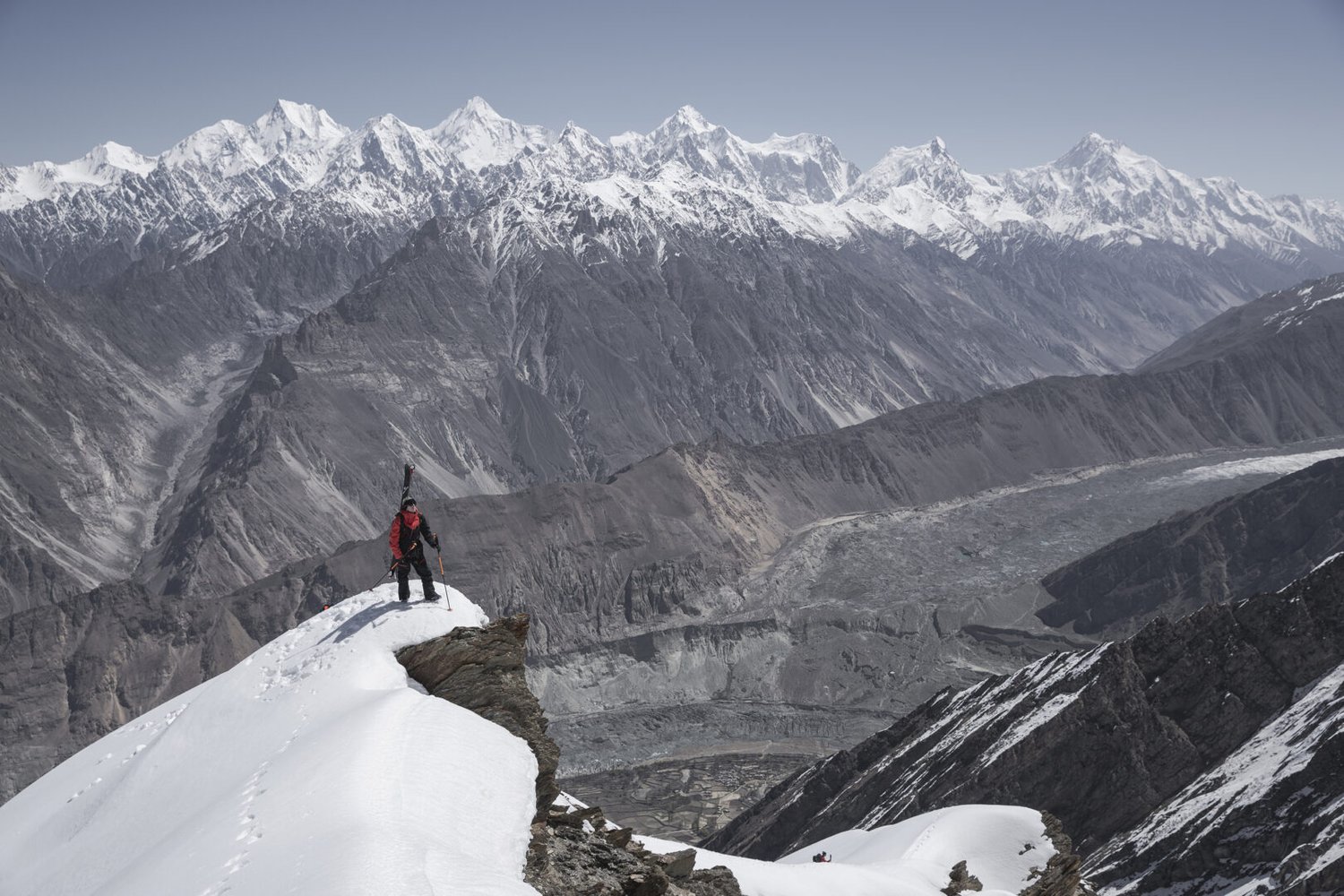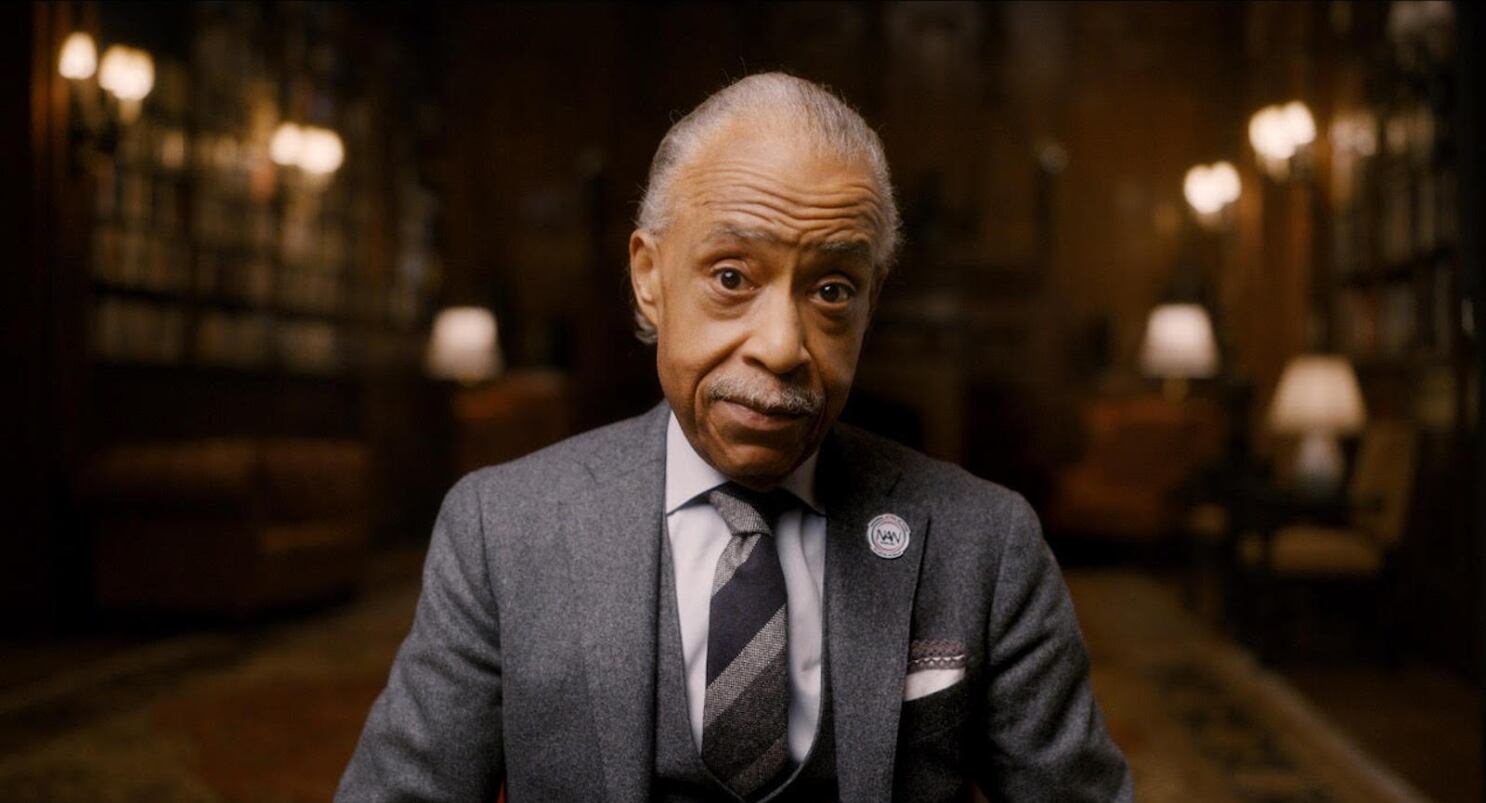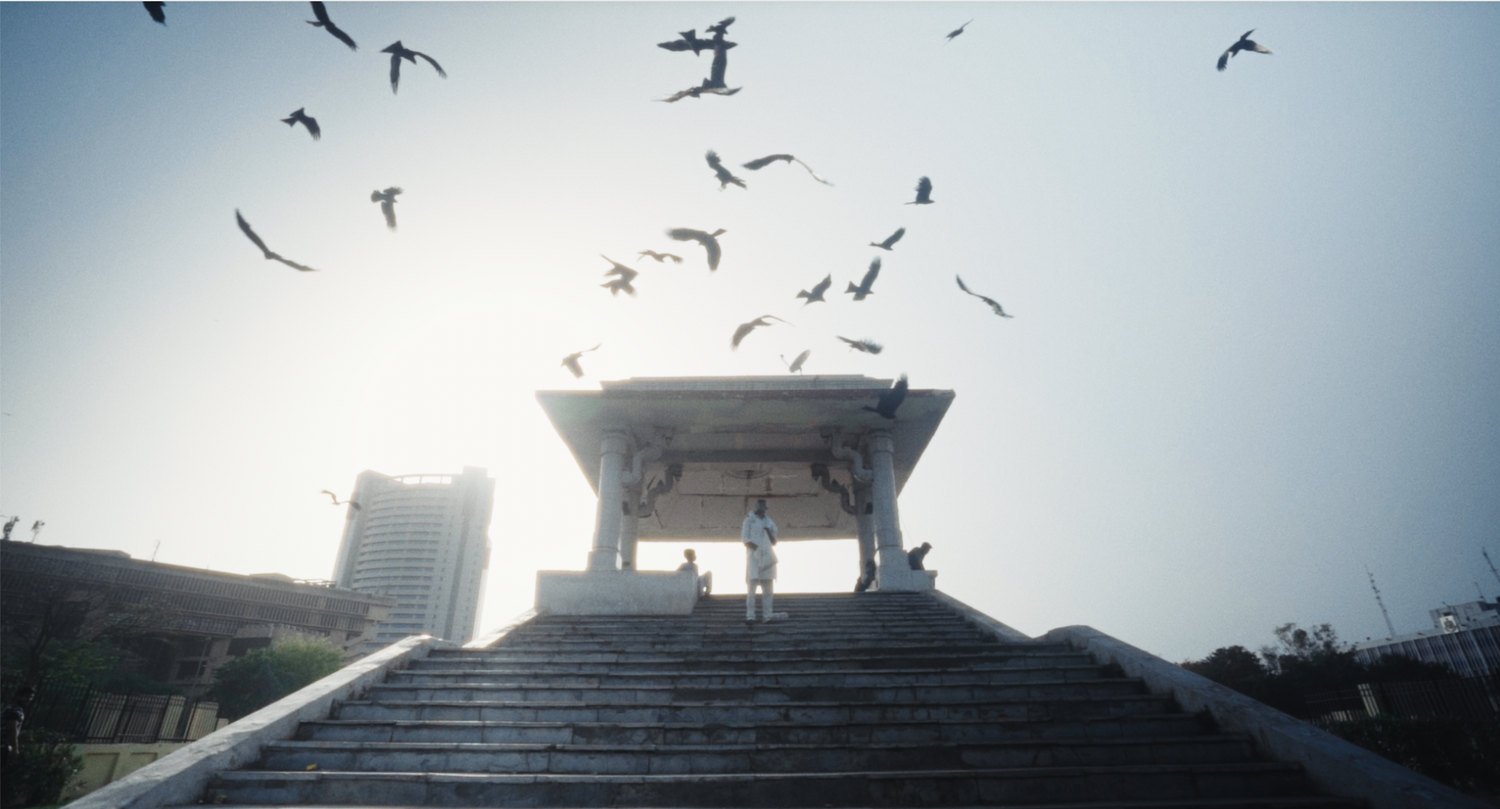High in the Fitzsimmons Range of the Coast Mountains sits one of the biggest showcases for Canadian film. However, one wouldn’t guess that a major film festival was happening if one walked around Whistler looking for clues. The Whistler Film Festival, which ran in theatres from November 30 to December 5 and screens online to January 2, has a unique atmosphere in the Canadian festival circuit. There’s nary a banner, poster, or placard to be seen in the busy tourist town. Unlike the Toronto International Film Festival, which transforms the city for 11 days, or even the Windsor International Film Festival, which unabashedly asserts its presence in the downtown core with entire alleys transformed with festival branding and consequently draws bigger crowds, Whistler is very laissez-faire. On one hand, it’s refreshing to have such a quiet festival experience. On the other hand, it’s a missed opportunity.
Whistler, in many ways is the ideal location for a film festival. There are loads of tourists with money and free time. There is little to do in Whistler at night, though, and it’s surprising to see how little the fest entices tourists looking for alternatives to sipping cocktails or hitting the hot tub after a day on the slopes. That’s too bad, since the festival itself doesn’t lack for quality.
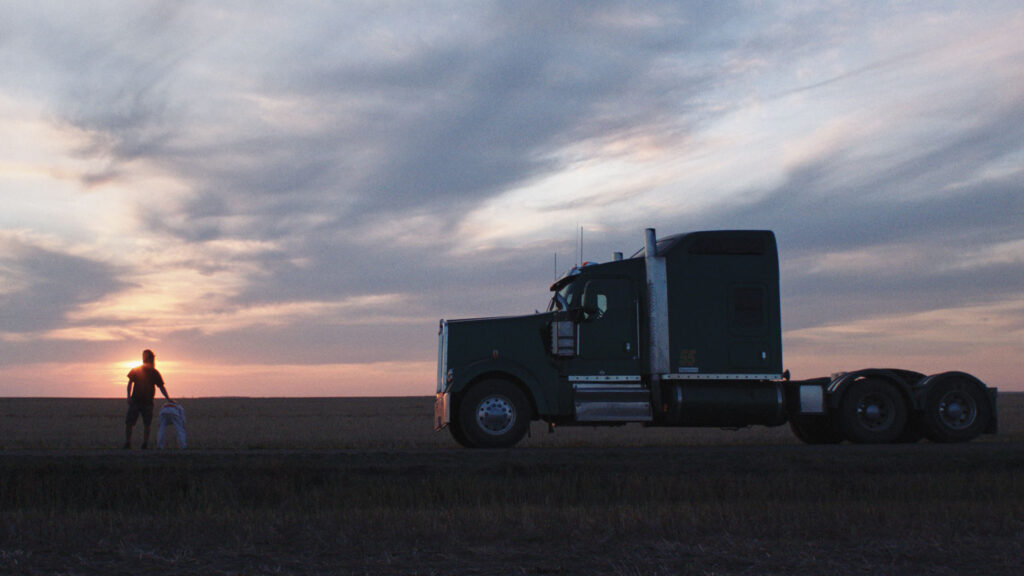
The Docs
The major world premiere among the documentaries at Whistler, Jason Priestley’s Offside: The Harold Ballard Story, is a rollicking portrait of the controversial former owner of the Toronto Maple Leafs. Offside recounts Ballard’s mishandling of the franchise, which reverberates in Toronto today. The film unpacks Ballard’s strange business sense and unorthodox relationship with the media. Priestley likens Ballard as the Trump who predated Donald Trump as we know him. However, the archival nuggets that Offside unearths make the former President seem tame by comparison. The film isn’t a hit job, though, as the talking heads afford Ballard credit where it’s due. (Mostly for his work in football with the Hamilton Tiger Cats.) Of all the Canadian films at Whistler, Offside seems likeliest to connect with audiences eager to learn why everyone hates the Leafs.
Also leaving a strong impression on the Canadian front is Ry Levey’s Out in the Ring. The film is an inclusive study of LGBTQ wrestlers in a sport largely defined by homophobic machismo. Levey looks at the ways in which wrestlers combat stereotypes in the ring and create safe spaces when pro-wrestling continually lapses into gay-baiting jokes at the queer community’s expense.
Ron Chapman’s music doc Revival69: The Concert that Rocked the World, meanwhile, offers a far more up-tempo Toronto story. Chapman’s doc recounts a one-day concert in Toronto that included the first-ever performance of John Lennon and The Plastic Ono Band, which the promoters landed in a Hail Mary. While the film might suffer in the shadow of fellow 1969 music doc Summer of Soul, there’s much to admire. The film is a must-see for doc fans thanks to footage shot by D.A. Pennebaker and his team. Yoko Ono’s screeching remains an acquired taste, but the footage itself is worthy of Monterey Pop.
Mountain Movies
Additionally, the Whistler Film Festival features a mountain of movies that take audiences to great heights. The programmers certainly know the crowd. For example, the short film showcase Mountain Culture Shorts drew a bigger crowd than the opening night screening of Noah Baumbach’s White Noise. Highlights from the series include the Brazilian doc Walking on Clouds, directed by Renan Kamizi. The film is an exquisitely shot portrait of daredevil Rafael Bridi, who literally realizes his dream of touching the clouds by tightrope walking between two hot air balloons. It’s a stunner.
Similarly, Snowblind, directed by Anthony Bonello, impresses with its portrait of Tyson Rettie. The film shares how Rettie continues his passion for skiing after losing his vision. Snowblind offers an inspiring study in holding strong in the face of adversity. Also notable is the section’s worthy winner, The Trapline. The doc is director Andrea Wing’s eye-catching profile of a woman who continues her family legacy for fur trapping. The film combines the thrill of the outdoors with a deeper examination of our relationship to the natural environment and the traditions that pass from generation to generation.
The Mountain Culture Shorts are particularly notable, though, because every film in the series is a form of branded content. All the docs credit investors and sponsors that range from expected coffers, like gear suppliers and apparel brands, to Revelstoke Tourism. The latter backs the short doc Beyond Begbie, Zola Lynch’s film that examines the histories behind the names of mountains like Revelstoke and the legacy of colonial violence that adventurers overlook while answering the call of the wild. These branded shorts, curiously, share similarly slick approaches, aesthetics, and tempos. The “mountain movie” is very much a distinct brand.
Influence, Peedom, and Donard
Snowblind’s Anthony Bonello fleshes out the mountain movie format in Tracing Influence, directed with Olympic skeleton racer Mike Douglas. Tracing Influence hits the slopes with athletes and learns about the heroes who inspire their love for mountain life. The film features touching stories, including those of parents who stir a thirst for the outdoors in their kids. Tracing Influence also defies the adage that people shouldn’t meet their heroes. As it connects protégés and masters, it shares how people who motivate us are equally fuelled by the discovery that their passion drives others.
Audiences can similarly see the mountain movie in top form in Jennifer Peedom’s Mountain. The doc, released in 2019 and back at Whistler as a retro, displays her eye in full scope. Images of rocky peaks and snow-capped cliffs offer a visual essay about the limits of human endeavour and the sacred role that mountains play across cultures. Peedom’s new film River, which won Whistler’s feature doc prize, examines waterways in a similar fashion. River, however, is nearly identical to Jennifer Baichwal, Nick de Pencier, and Edward Burtynsky’s Watermark. The film features a similar thesis, aesthetic, and approach as the 2013 doc. Moreover, many of the locations featured in River are the same as those of Watermark. Peedom’s eye is a cinematic as that of the Watermark trio, but River, impressive as it is, feels a decade late. It nevertheless delivers a message about the impact of human activity on water that stands on its own merit.
The Call of the Wild
If Peedom is the queen of the mountain movie, Donard shows why he’s the king with Human Extreme. The doc, the closing night selection of the Whistler Film Festival, takes audiences to thrilling heights with its globetrotting portrait of outdoor enthusiasts. Thanks to dazzling drone footage and a mutual interest in taking things to extremes, Donard’s film puts the wind in your hair as it races down the mountains with its daredevils. It’s a true adrenaline rush.
With so many mountain movies at the Whistler Film Festival, one inevitable feels a pull to explore the peaks. The Whistler experience defines itself with a breath of fresh air that audiences can’t get elsewhere. This critic recommends the peak-to-peak gondola ride, which the contingent of critics at the festival took with Whistler tourism. The jaunt up Whistler-Blackcomb affords a striking sense of the landscape with picturesque views. (Lunch at Christine’s atop Blackcomb is especially recommended for festivalgoers eager to multi-task and enjoy the bountiful range of dining options in Whistler in addition to the stunning landscape.) Outdoor excursions between screenings, moreover, give a taste of the thrill that fuels much of the programming. Few festivals let audiences dip their toes in the stories that appear on screen like Whistler does.
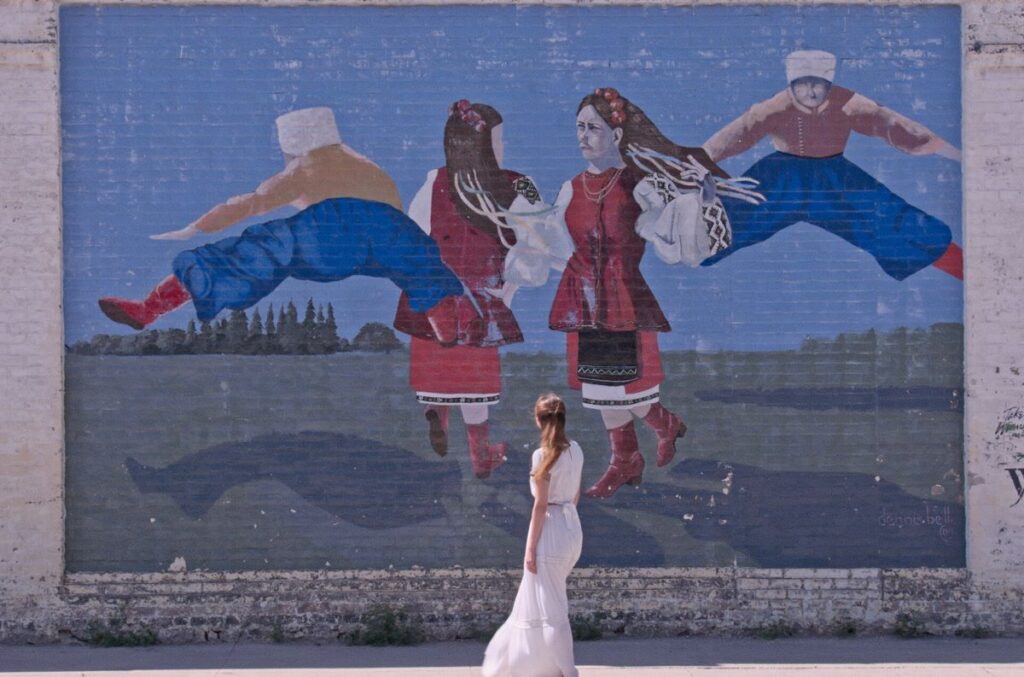
The Borsos Competition
While audiences might like the novelty of catching mountain movies amid the stunning peaks, the hallmark of the Whistler Film Festival programming is the Borsos competition. Although no documentaries appear in the 14-film competition, the slate of Canadian features includes some festival standouts. Deco Dawson’s brilliant and zanily ambitious Diaspora offers a hybrid portrait of Winnipeg’s North End. The film follows a Ukrainian refugee, Eva (Yulia Guzhva), as she settles in Winnipeg and encounters her new neighbours while exploring the city. Dawson boldly films the action in 25 languages and uses a cast of mostly non-professional actors whose experiences inform the drama. Few films capture the spectrum of Canadian multiculturalism with such candour.
A perfect film for movie lovers, meanwhile, is the infidelity drama Midnight at the Paradise. Directed by Vanessa Matsui and written by Bill Robertson, Midnight at the Paradise sees two couples—Allan Hawco and Liane Balaban, and Ryan Allen and Emma Ferreira—test their relationships when an encounter outside Toronto’s Paradise Theatre reignites sparks. The film embraces the messiness of relationships and the dedication it takes to commit. The performers themselves truly commit across the board. The film has a great eye for Toronto, too, although local audiences might discern the cameo appearance of the Regent Theatre, which stands-in for the interiors of the Paradise. The cameo also inspires nostalgia for the local screens that closed during the pandemic. However, Midnight is especially notable for the touching turn by Kenneth Welsh in his final screen performance. The veteran saves one of his best performances for last—and Matsui knows it.
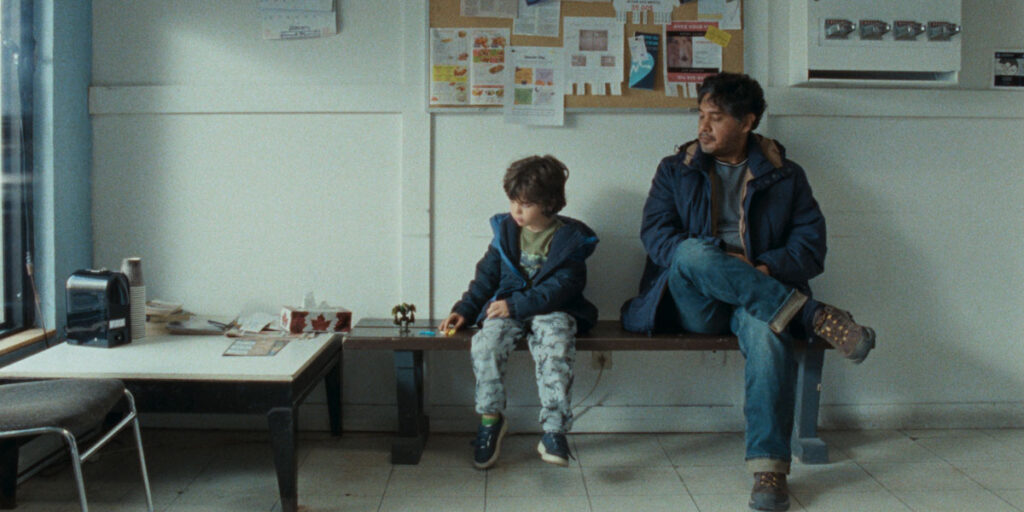
Family Flicks Top Whistler Competition
Two stories of family ties, however, are the standouts of the Whistler Canadian competition. The Borsos’ overall winner for Best Feature, Katherine Jerkovic’s Coyote, is a sobering slice of kitchen sink realism. The film follows Camilo (Jorge Martinez Colorado) as he seeks employment following the closure of his restaurant. A surprise guardianship of a grandson he never knew changes his priorities, though, and the film observes the plight of immigrant families who seek to afford stability for the next generation. Jerkovic lets the drama unfold sedately as she immerses audiences in the daily grind for families on the margins. Coyote goes inside the homes to explore in-depth the lives that intersect with, say, Eva’s journey in Diaspora. The film turns an empathetic lens on the stories of new Canadians, and finds touching human drama in daily life.
The best of the fest in my books, though, is Rodeo. The film, which won the Borsos Competition’s Best Director prize for Joëlle Desjardins Paquette, is a heartbreakingly good portrait of the lengths to which a father goes for his daughter. Rodeo takes a fresh approach to the road movie as a father (Maxime Le Flaguais) abducts his daughter (Lilou Roy-Lanouette) amid a strained divorce. He hauls ass in his big rig with dreams of winning a drag race in the Alberta badlands. There are echoes of Thelma & Louise in this ill-fated road movie, but also hints of Nomadland and Malick thanks to the sumptuous cinematography that captures the horizon with bittersweet poetry. Desjardins Paquette has a natural sensibility for people and places. She also draws excellent performances from her two leads, particularly young Roy-Lanouette, while rooting Rodeo in the grand malaise of the Canadian landscape.
The big rig of Rodeo doesn’t make it to the Coast Mountains, but the views are fittingly inspiring. Like the environment in which it screened, the film is, in a word, refreshing.




